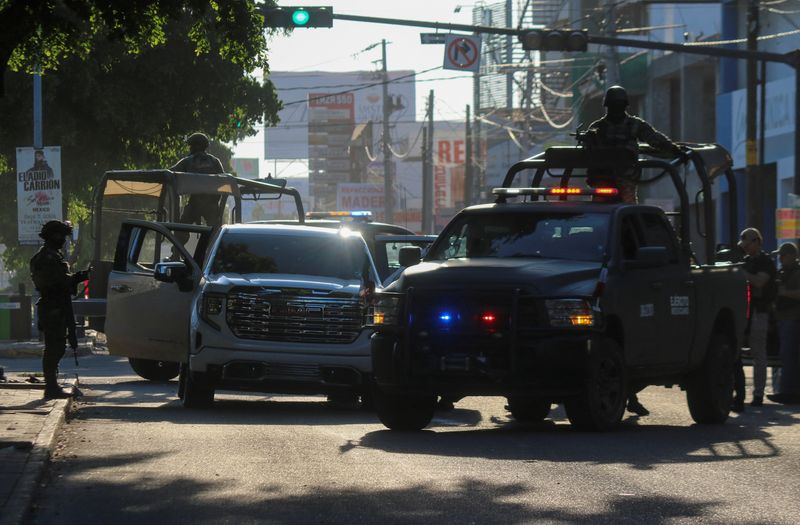By Lizbeth Diaz
MEXICO CITY (Reuters) - Some 53 people have been killed and 51 others are missing in Mexico's western Sinaloa state since rival factions of the Sinaloa Cartel began clashing on Sept 9, local authorities said on Friday, with gruesome violence showing no signs of abating.
The trigger for the conflict between the two most powerful factions of the Sinaloa Cartel, a drug gang, dates back to July, when legendary trafficker and leader of one of those groupings, Ismael "El Mayo" Zambada, was arrested in the United States.
Zambada, 74, alleges that a senior member of the Los Chapitos, another faction of the cartel, kidnapped him and then flew him to the United States against his will.
Since fighting broke out on Sept 9, shootouts have disrupted daily life in the capital, Culiacan, where schools have had to close on some days while restaurants and shops shuttered early.
Sinaloa governor Rubén Rocha Moya on Friday said more than 40 people have been arrested in recent days, while more than 5,000 food packages have been handed out across Sinaloa.
Mexico's military, which has struggled to calm the violence, on Thursday arrested the alleged head of security for Ivan Archivaldo Guzman, the leader of Los Chapitos and son of jailed former Sinaloa kingpin, Joaquin "El Chapo" Guzman.
Fernando Perez Medina, known as "El Piyi", was captured in Culiacan, according to a federal security source.
Meanwhile, Mexico's Federal Attorney for Environmental Protection (Profepa) said it was providing resources to local authorities to feed a tigress tied to a tree. Senior Sinaloan narcos often keep tigers as pet animals.
Profepa said in a statement that vets in Sinaloa had declined to assist due to security fears, and it had provided military officials with a "cage, a dart rifle and darts". But the violence had prevented the military from rescuing it.
Mexico's President Andres Manuel Lopez Obrador on Thursday said that the United States was partly responsible for the instability because they "carried out this operation", referencing the prior surrender talks between U.S. officials and Joaquin Guzman Lopez, the trafficker who kidnapped Zambada.

U.S. officials have privately confirmed that they held talks with Guzman but U.S. Ambassador to Mexico, Ken Salazar, last month said that American officials were surprised to discover Zambada on U.S. soil.
Salazar added that no U.S. resources or personnel were involved in the July 25 kidnapping of Zambada.